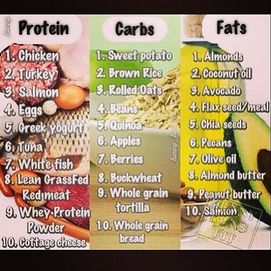
Food and hydration are the equivalent to petrol and water for a car. A car will chug along with poor maintenance but it will not be as efficient. Whereas, if we keep it serviced and looked after, it will speed us around effortlessly.
Whether you have had a stroke or are a carer/family member, your diet will contribute to how you feel.
I have detailed below some interesting facts about food, to help demonstrate why a balanced diet is so important for health.
There are three main food groups, and water:
Protein
Carbohydrates
Fats
PROTEIN - Building blocks of the body:
- Used for repair and renewal of muscle.
- ¾ body’s solid matter is protein.
- Protein requires a lot of energy to digest, and a lot of digestive action, therefore a high protein diet makes the body very acidic.
- Long term high protein diet can create higher risk of osteoporosis.
- Atkins diet for example is not suitable for people who are sedentary.
Good sources of protein are:
White lean meats such as chicken, turkey, rabbit.
All fish, but particularly 2 – 3 x a week of 0ily fish such as salmon, mackerel.
Beans, peas and pulses, contain soluble fibre that can help lower cholesterol.
Nuts and seeds (for their oils too).
Carbohydrates
Keep low: Pastries, white breads, refined crackers, commercial cereals. They contain very little fibre or nutritional benefit. The Free From products are particularly refined, so buyer beware.
Keep high: Whole grains, Brown rice, white rice, free from oats, rye,barley, lentils, raw or lightly cooked vegetables, fresh fruit, nuts, seeds.
- Refined carbohydrates are much harder to digest as they compact and become gluey in the digestive system.
- This is made worse if the digestive system is dehydrated.
- Fishermen use white bread because it clumps together and do not dissolve in water. White flour was used in the Second World War for wall paper paste.
- Whole grain foods are very high in fibre which stimulates the digestive system and bowel, vitamins and minerals.
Water - Vehicle for nutrients.
Facts:
1.137 ltrs of water are lost from our bodies each day.
2 ltrs of digestive juices are produced each day (average adult). Water is needed for this process.
Dehydration causes problems and worsens many illnesses.
Minerals such as calcium, magnesium, phosphorus will not be effective if the body is
dehydrated as they work in a dissolved form.
Dehydration creates headaches, effects blood pressure, mood, poor digestion,
constipation, skin rashes, heart burn and much more.
FATS – The Good, The Bad and The Ugly
Two forms:
Solid (or Saturated) eg:
Rind and marbles of fat in meat
Cheeses
Cream
Full fat butter
Sausages, burgers, meats in pies
Hydrogenated, eg. Margarines
Ghee (used in Indian cooking)
Palm oil, Coconut oil, Coconut cream
Liquid (or Unsaturated) eg:
Oils such as olive oil, hemp oil, avocado oil
Nuts and Seeds
Omega 3 found in seeds and oily fish.
Omega 3 is particularly known for reducing stroke risk by preventing blood clots. It also helps lower cholesterol and blood pressure.

 RSS Feed
RSS Feed